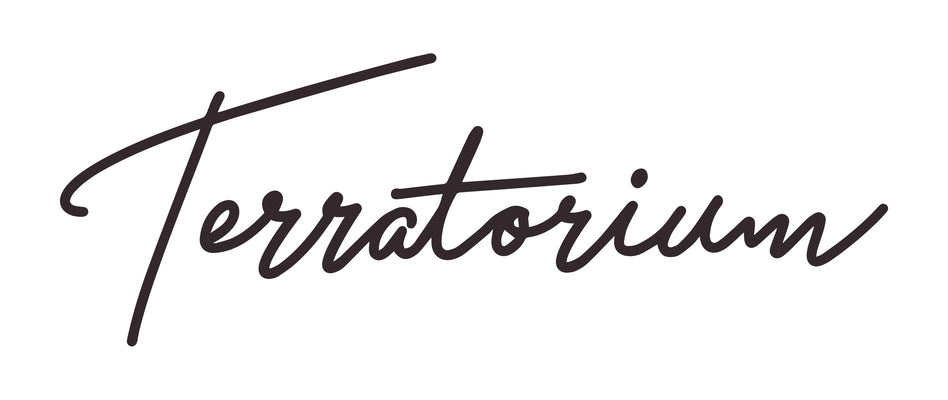Our Winemaking

We follow one principle above all else.... make the best wine we absolutely can.
Everything we do at Terratorium is through that lens and if we do not think a certain practice would improve a particular wine we won't do it. Ideally most of the work to create the wine is done in the vineyard, but we all know Mother Nature can have her own plans.
By working with the best grower partners, employing the right farming practices, and making the best harvest decision we can the grapes should arrive at the winery in pristine condition. Ideal quality grapes means we can strive for minimal intervention in the winery, but it doesn't mean we "do nothing." There are a few limited tools / additives we will sometimes use in our winemaking if the situation demands it. We want to be certain you'll never want to pour a Terratorium wine down the drain because it is unsound or doesn't meet your quality standards.
To be clear, we are not required to share this information by law- like on a food, cosmetic, or supplement label. So why share it? In addition to making the best wine we can we also follow a principle of transparency. If you are drinking our wines so you should know what is in them. Simple as that.
- Yeast - occasionally we will use selected yeast in our wines. These are yeast strains that have been isolated, often from famed wineries or wine regions, and provide certain fermentation flavors or characteristics. Adding yeast is more common on our white and rosé wines.
- Water - wine is mostly water because grapes are mostly water. Unfortunately in this era of a changing climate severe heat spikes are more common during the growing season. This can stress the grapevine and cause the them to evaporate water as they try to regulate temperature. With less water in the grape sugar levels and potential alcohols increase. If we need to mitigate the effects of a late season heat spike we will "water back" our fermentations with minimal amounts of water.
- Tartaric Acid - this acid is an organic acid that naturally occurs in grapes. It is also not easily consumed by spoilage microorganisms, so it helps preserve the wine in bottle. Like water, we will occasionally use tartaric acid in the winery because extreme vintage conditions can sometimes also degrade acid levels in the wine. Having the correct acid levels also allows us to use less sulfur dioxide to preserve the wine.
- Sulfur Dioxide - Or "SO2" as it is sometimes called. This material has been used to preserve wine for thousands of years dating back to Ancient Roman times. We closely monitor our wines during the throughout their entire production process until bottling and only use minimal amounts of SO2 to keep our wine sound and stable. We love the idea of not using SO2. However, in our experience range of possible conditions wines can be exposed to make this a risky proposition and usually SO2 free wines "lose their luster" through oxidation or spoilage without some SO2.
- Yeast Nutrients - We will occasionally use organic yeast nutrients, even if we are not adding yeast to our fermentation. These consist of kosher or organic vitamins, minerals, and proteins that occur naturally in grapes, but might not be at sufficient levels in the juice depending on a vintage. Sometimes the wine yeast need a little extra "food" to finish the fermentation. When yeast have a nutrient deprived environment they can release off-flavors into the wines because they are stressed and starving.
- Potassium bitartrate / Cream of Tartar - this ingredient, commonly used in baking, is a byproduct of winemaking where tartaric acid, mentioned above, forms a salt crystal with the potassium found in wine as it is cooled to low temperatures. Without giving you a chemistry lesson, we sometimes will add extra Cream of Tartar and cool our wines to low temperatures in the winery to encourage the wine to form "tartrates" crystals in the winery. That way our wines don't have crystals forming at the bottom of the wine bottle in your fridge.
- Gelatin - proteins like gelatin, commonly derived from collagen, have been used in traditional winemaking for centuries. These proteins are particularly adept at binding to the tannins to soften the wine's structure on your palate. If we our assessment of the aging wine's tannin profile shows it needs taming- and couldn't be resolved by aging alone- we will employ this traditional additive to soften the wine.
- Bentonite Clay - this naturally occurring clay has been used in used in winemaking for hundreds of years and maybe more. In addition to having some medical and cosmetic applications, it is used in winemaking to help clarify and stabilize wine against heat and haze damage. We will occasionally use this natural additive if we need help ensuring the wines are "heat stable."
Again we only intervene in the winery if we think it will result in the best wine. If you have any questions about these "tools" we will use please feel free to email us (info@terratoriumwines.com) to discuss more. Cheers!

